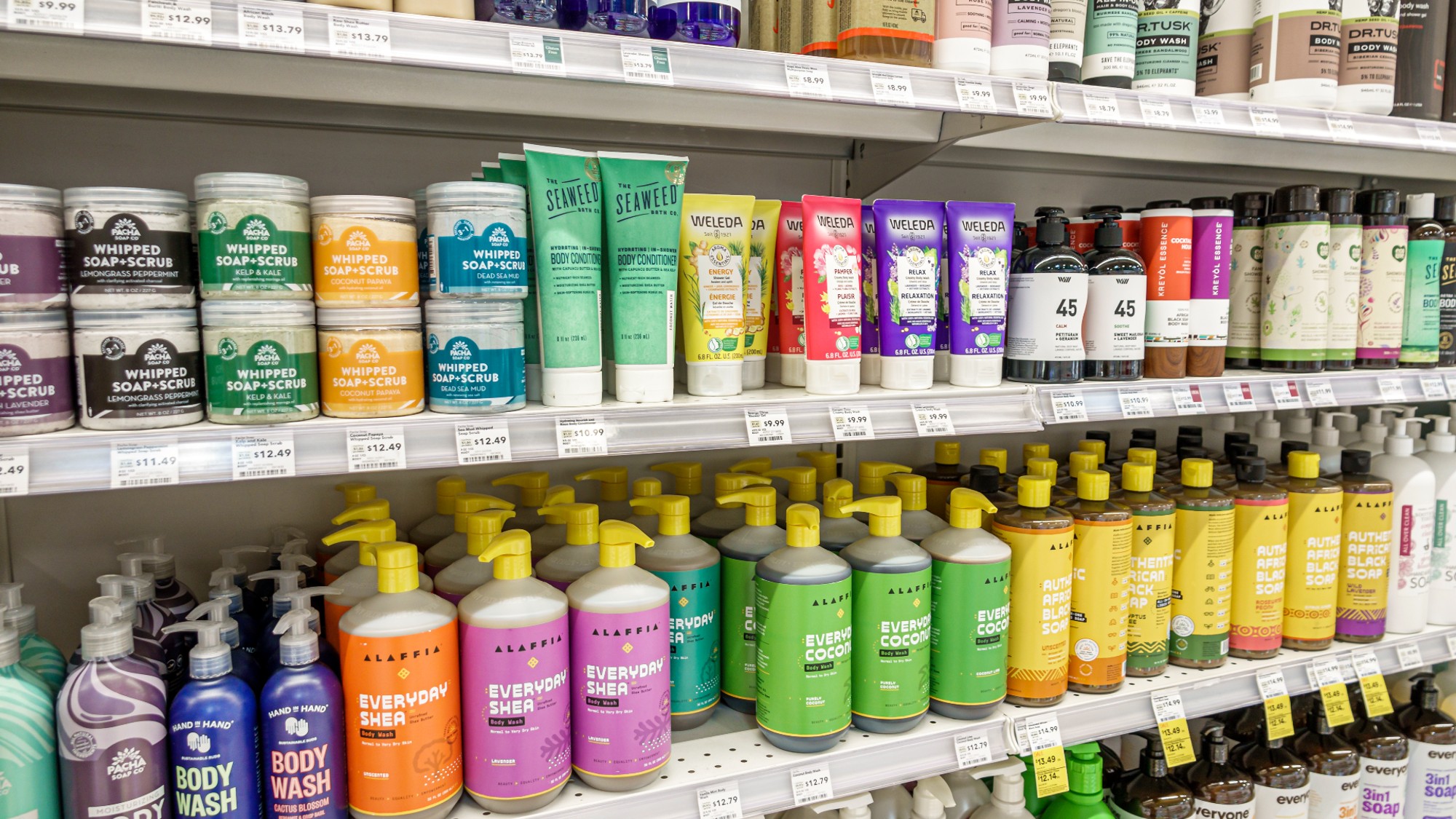Retinol: why holy grail of skincare faces ban
EU set to limit concentration of over-the-counter products amid fears of vitamin A overdose

A free daily email with the biggest news stories of the day – and the best features from TheWeek.com
You are now subscribed
Your newsletter sign-up was successful
Scientifically proven to reduce fine lines, wrinkles and pigmentation, retinol is commonly referred to as the "gold standard" of skincare.
It boasts "almost magical properties", said GQ, and has developed a reputation as one of the industry's "most effective ingredients".
Retinol has been a "beauty buzzword" for quite some time, said The Independent. But it faces a challenge to its status as the holy grail of skincare, with new EU legislation set to limit the concentration of retinol allowed in over-the-counter products.
The Week
Escape your echo chamber. Get the facts behind the news, plus analysis from multiple perspectives.

Sign up for The Week's Free Newsletters
From our morning news briefing to a weekly Good News Newsletter, get the best of The Week delivered directly to your inbox.
From our morning news briefing to a weekly Good News Newsletter, get the best of The Week delivered directly to your inbox.
What is retinol?
Retinol's entry into the business of looking younger came in the 1970s. And it was "no fad", said GQ. It has "stuck around" because, "unlike a lot of the inexact science pushed by 'age-defying' products, it actually works".
A fat-soluble derivative of vitamin A, it "improves skin texture, collagen production and cell turnover – reducing the appearance of fine lines, wrinkles, large pores and pigmentation", said The Independent. "Countless brands, beauty buffs and influencers" push the product as "the secret to great skin".
But its effectiveness can come at a cost. For first-time users, it can cause irritation such as redness, dryness and peeling – known as "retinol purging" – while more severe, yet rarer, side effects include acne breakouts, eczema flare-ups, skin discolouration and swelling.
Why limit retinol concentration?
New EU legislation caps the percentage of pure retinol allowed in over-the-counter facial skincare products to 0.3%. Body lotions will be allowed to contain levels of up to 0.05%.
A free daily email with the biggest news stories of the day – and the best features from TheWeek.com
The legislation, backed by the Scientific Committee on Consumer Safety (a group of toxicology and safety experts for non-food consumer products), came into force at the end of 2023. The rules won't apply straight away, however. Brands have been given three years to reformulate their existing retinol products.
The changes do not imply that previous permitted amounts were "in any way harmful", said Women's Health. Rather, the aim is to "minimise people's overall exposure and decrease any sensitivity risks that come with using a higher strength than your skin can tolerate".
This is to "protect consumers from the theoretical risk of overdosing on vitamin A", Dr Sam Bunting, a skincare expert, told Stylist. "The reasoning is that too much vitamin A can cause health issues like liver damage, and very high levels might harm the unborn foetus in pregnant women."
This is because vitamin A, rather than being water soluble like many other vitamins, is fat soluble. Therefore "your body can't get rid of it in the same way it can vitamins B and C, and that's where the risk of overconsumption comes in", said Elle.
The "vast majority" of vitamin A is consumed through diet, dermatologist and surgeon Dr Magnus Lynch told Glamour.
But cosmetics "add to the overall consumer exposure", said the committee. That could be a concern for consumers with the highest exposure (5% of the total population) to vitamin A from food and food supplements.
What is the reaction to the new rules?
"I do believe that this change in legislation is – on the whole – a good thing," said Chloe Burcham, beauty editor of Women's Health.
While retinol is "a brilliant ingredient for some skin types", it is "not for everyone", especially children and teenagers, who have emerged as a rapidly growing market for skincare in recent years.
“The changes in legislation will probably affect people's current skincare products because a lot of people have been building up the strength of retinol that they use from the point of five to 1%," Ahmed El Muntasar, GP and aesthetics doctor, told the magazine. "But this is probably a good thing because young people and teens are using it when they don't need to be."
The ban won't actually affect the percentages allowed in prescription tretinoin either, so those who need a "heftier dose of vitamin A", often prescribed to treat acne, will still be able to access it from a doctor, said Stylist.
"The good news," said Bunting, "is you are still likely to get noticeable benefits from retinol 0.3%, both in terms of collagen production and unclogging pores for acne prevention."
And the fact that brands have been given three years to change their formulations is "reassuring", she told the magazine. "If there was real danger, faster action would likely be required."
-
 6 exquisite homes with vast acreage
6 exquisite homes with vast acreageFeature Featuring an off-the-grid contemporary home in New Mexico and lakefront farmhouse in Massachusetts
-
 Film reviews: ‘Wuthering Heights,’ ‘Good Luck, Have Fun, Don’t Die,’ and ‘Sirat’
Film reviews: ‘Wuthering Heights,’ ‘Good Luck, Have Fun, Don’t Die,’ and ‘Sirat’Feature An inconvenient love torments a would-be couple, a gonzo time traveler seeks to save humanity from AI, and a father’s desperate search goes deeply sideways
-
 Political cartoons for February 16
Political cartoons for February 16Cartoons Monday’s political cartoons include President's Day, a valentine from the Epstein files, and more
-
 ‘Zero trimester’ influencers believe a healthy pregnancy is a choice
‘Zero trimester’ influencers believe a healthy pregnancy is a choiceThe Explainer Is prepping during the preconception period the answer for hopeful couples?
-
 Europe’s apples are peppered with toxic pesticides
Europe’s apples are peppered with toxic pesticidesUnder the Radar Campaign groups say existing EU regulations don’t account for risk of ‘cocktail effect’
-
 Stopping GLP-1s raises complicated questions for pregnancy
Stopping GLP-1s raises complicated questions for pregnancyThe Explainer Stopping the medication could be risky during pregnancy, but there is more to the story to be uncovered
-
 RFK Jr. sets his sights on linking antidepressants to mass violence
RFK Jr. sets his sights on linking antidepressants to mass violenceThe Explainer The health secretary’s crusade to Make America Healthy Again has vital mental health medications on the agenda
-
 Nitazene is quietly increasing opioid deaths
Nitazene is quietly increasing opioid deathsThe explainer The drug is usually consumed accidentally
-
 The expanding world of child skincare
The expanding world of child skincareUnder the Radar Beauty line for kids as young as three sparks ‘rage’
-
 The plant-based portfolio diet invests in your heart’s health
The plant-based portfolio diet invests in your heart’s healthThe Explainer Its guidelines are flexible and vegan-friendly
-
 More women are using more testosterone despite limited research
More women are using more testosterone despite limited researchThe explainer There is no FDA-approved testosterone product for women